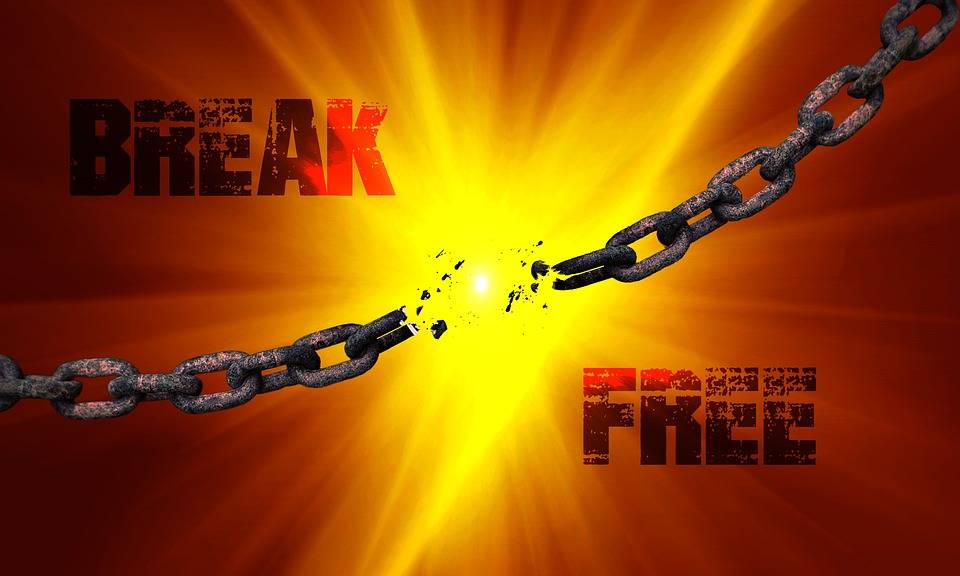SHEDDING LIGHT ON ADDICTION
Addiction starts first as a secret. The addict later loses control of self and use of the substance. This is the reason a mother will put the children to bed and drink herself to sleep, a father will log on to pornography or gamble after the family has gone to bed and feed the obsession in the mind.
Someone will drive out and wait in a lonely road for his / her drug dealer to deliver supplies of drugs, someone will go to a physician and ask for pain medication even when there is no physical pain, someone will jump from one relationship to another; we can go on and on. Addicts realize after the ‘false’ sense of happiness; they feel more pain, use more to get back to being ‘happy’.
This is a cycle an addict cannot break on his or her own! They likely tell themselves “I am a mess”, “I have the right to use what I want” “I have to put my life together”, “no one needs to know”, “I am responsible for what happened to me” etc.
Addiction includes any negative thing we do which takes away our attention from dealing with the source of our stress and trauma. It also takes away our attention from our loved ones.
A person’s addiction case can include drugs, gambling, alcohol, pornography, relationships etc. Most times it is secretive. The person’s mind ruminates or gets obsessed with these things and their use or withdrawal behaviour is excessive.
Work can sometimes be an addiction too if it takes the place of loved ones. This is because addiction takes away the attention which the person’s loved ones deserve. The person works extra hours, brings work home and finds joy in work instead of in spending time with loved ones.
I had a teenager say to me “I will never be an engineer because my dad comes back late, and always on computer after his dinner doing more work, I don’t want to be like my dad”.
Why do people get into Addictions?
Most people give reasons for their addictions as a way of coping or escaping from the stress of their trauma.
It is also used most times as a coping mechanism to deflect from feeling the pain from their trauma. These traumas can vary from childhood abuse, abusive relationships, grief and loss, abandonment, family dysfunctions etc.
In my years of working with addicts, most addicts get into alcohol or drug use as early as the age of 12. Reasons vary from childhood abuse including sexual abuse, absentee fathers, addicted parent /parents.
Some children also start using drugs with their parents or peers and they go on from there. Whatever your reasons are for being addicted to abusive relationships, picking up that bottle, picking that drug, calling that drug dealer for supplies, working very late hours, driving out to find that drug, keep pouring in that alcohol into your throat even when you know the effects.
The good news is there is hope for every addict and their loved ones!
Why do addicts keep it a secret?
As mentioned above, addiction is most times a coping mechanism from trauma. It is secretive because it comes from a place of guilt and shame.
How does a woman disclose that she was sexually abused by her father or her mother’s boyfriend at the age of 12? How does a child tell other children at the play ground that her parents fought last night?
How does a woman disclose she is in an abusive marriage when friends and family have the impression that her relationship is all ‘good’?
How does a boy whose father has never been in his life tell his peers that he is angry with his father? How does he answer the questions in his head: “maybe I was a bad kid and dad left?”
How does a child explain the family he once believed in and felt safe has split, dad remarried and mom remarried? How do couples who believed they got together because they were in love tell their friends they are no longer in love?
How Can an Addict find Hope?
Most of the time an addict will live in denial because they keep their struggles a secret.
Shame does not allow them to ask for or accept help. An addict can only agree to receive support when he /she has hit rock bottom.
This can be when the person has survived an overdose experience, or seen the children taken away by Child and Family Services into foster care, or a terminal health diagnosis result is received from the Physician.
This is why even when families meet with the addict, get friends to talk to the addict; the addict still refuses the suggestions to stop. The addict will do every thing to defend self from shame until the person hits rock bottom.
Once the person is ready for support, they could be taken to a detox centre and from there to addiction treatment.
If you find yourself in one addiction or another, don’t wait until you hit rock bottom. Reach out for help because addiction does no good to anyone. It could lead you to a huge loss of resources, relationship with loved ones, death, disability, crime, and jail.
None of these outcomes are good. The time to get help is NOW!
Are you in a relationship with an Addict?
If you are a family member, a partner, child, adult child of the addict, you are equally affected by the addictions of your loved one. The impact of this on you can span from abandonment, bottled anger, self sabotage, shame, guilt, lack of trust, un-forgiveness, aggressive communication style, fear, abuse of all types, stress, anxiety, insomnia, depression; the list goes on.
Don’t lose yourself to addiction! This is the time to get help for you!
Georginia Nwoke, R. Psych.

